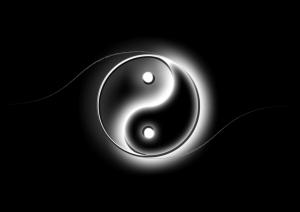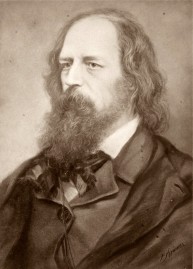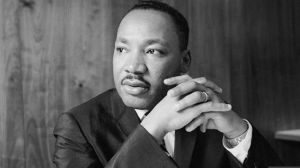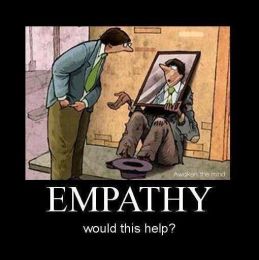Preston Harold tells us that over time, our empathy will begin to replace the role of our conscience:
If, in time, under evolution’s “psychic entropic” working, abuse and error should decrease, then empathy, not fear or conscience, would guide man into the paths of compassion and decency – that is, the voice in conscience in man must lessen as empathy takes over its role, governing action from a higher level of consciousness. In the Gospels the voice of conscience calling man to repentance comes through John the Baptist, whereas the voice of empathy, the Christ, speaks of abiding love and says: “These things I have spoken to you, that my joy might remain in you, and that your joy might be full.”
We discussed the identifying of John the Baptist with conscience in an earlier post here. Preston Harold continues that discussion:
The voice of conscience, John the Baptist, says of this voice of truth: “He must increase, but I must decrease…” The concept that conscience must in time lessen as evolution’s purpose is fulfilled may be a startling one, but [Robert] Ardrey’s words are also startling – he says: “…conscience as a guiding force in the human drama is one of such small reliability that it assumes very nearly the role of a villain….Conscience organizes hatred as it organizes love.” Jesus says of conscience – that is, of John the Baptist, it’s symbol – “Among them that are born of women there hath not risen a greater than John the Baptist: notwithstanding he that is least in the kingdom of heaven is greater than he.” In the kingdom within, conscience must have little part – does empathy take its place?
“Conscience organizes hatred as it organizes love.” Quite a statement and an idea that has never crossed my mind! But thinking about it, I can understand. If my conscience tells me to take a particular side, I certainly may develop an aversion for the other. How many times do we find ourselves in “over and against” situations, whether it be religion, politics, or any other human endeavor? And how much energy is spent feeding this “over and against-ness” in our media, education, and professional lives?
Harold continues to explore empathy:
If a core of perfect empathy exists in the unconscious, it provides for man’s capacity to love others no matter how far they fall and to love his own soul whatever its hue. How many people have glimpsed in their dreams this inner realm that is utterly theirs?… As yet, psychologists offer no satisfactory explanation of a sublime self-love that draws the soul or ego-group together toward “home” – neither do philosophers. Both seem blind to all but lust. Francois, Duc de la Rochefoucauld describes man’s lust…: “All unknowingly it breeds, nourishes, rears a variety of affections and hatreds, some of them so monstrous that when it has brought them to light it fails to recognize or refuses to acknowledge them.” And so they are repressed – as psychologists have observed – but Love takes them in, reverses and reclothes them, makes them sufficient to re-enter the conscious domain and under life’s supreme law be redeemed.
And that does it for Chapter 6! We now move on to Chapter 7 where we will look in depth at the concept of the number One. Until then, peace.



















